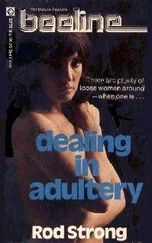Vladimir Nabokov - Strong opinions
Здесь есть возможность читать онлайн «Vladimir Nabokov - Strong opinions» весь текст электронной книги совершенно бесплатно (целиком полную версию без сокращений). В некоторых случаях можно слушать аудио, скачать через торрент в формате fb2 и присутствует краткое содержание. Город: New York, Год выпуска: 1990, Издательство: First Vintage International Edition, Жанр: Классическая проза, на английском языке. Описание произведения, (предисловие) а так же отзывы посетителей доступны на портале библиотеки ЛибКат.
- Название:Strong opinions
- Автор:
- Издательство:First Vintage International Edition
- Жанр:
- Год:1990
- Город:New York
- ISBN:нет данных
- Рейтинг книги:4 / 5. Голосов: 1
-
Избранное:Добавить в избранное
- Отзывы:
-
Ваша оценка:
- 80
- 1
- 2
- 3
- 4
- 5
Strong opinions: краткое содержание, описание и аннотация
Предлагаем к чтению аннотацию, описание, краткое содержание или предисловие (зависит от того, что написал сам автор книги «Strong opinions»). Если вы не нашли необходимую информацию о книге — напишите в комментариях, мы постараемся отыскать её.
Strong opinions — читать онлайн бесплатно полную книгу (весь текст) целиком
Ниже представлен текст книги, разбитый по страницам. Система сохранения места последней прочитанной страницы, позволяет с удобством читать онлайн бесплатно книгу «Strong opinions», без необходимости каждый раз заново искать на чём Вы остановились. Поставьте закладку, и сможете в любой момент перейти на страницу, на которой закончили чтение.
Интервал:
Закладка:
You spent 20 years in America, and yet you never owned a home or had a really settled establishment there. Your friends report that you camped impermanently in motels, cabins, furnished apartments and the rented homes of professors away on leave. Did you feel so restless or so alien that the idea of settling down anywhere disturbed you?
The main reason, the background reason, is, I suppose, that nothing short of a replica of my childhood surroundings would have satisfied me. I would never manage to match my memories correctly — so why trouble with hopeless approximations? Then there are some special considerations: for instance, the question of impetus, the habit of impetus. I propelled myself out of Russia so vigorously, with such indignant force, that I have been rolling on and on ever since. True, I have rolled and lived to become that appetizing thing, a «full professor», but at heart I have always remained a lean «visiting lecturer». The few times I said to myself anywhere: «Now, that's a nice spot for a permanent home», I would immediately hear in my mind the thunder of an avalanche carrying away the hundreds of far places which I would destroy by the very act of settling in one particular nook of the earth. And finally, I don't much care for furniture, for tables and chairs and lamps and rugs and things — perhaps because in my opulent childhood I was taught to regard with amused contempt any tooearnest attachment to material wealth, which is why I felt no regret and no bitterness when the Revolution abolished thai wealth.
You lived in Russia for twenty years, in West Europe for 20 years, and in America for twenty years. But in I960, after the success of Lolita, you moved to France and Switzerland and have not returned to the U.S. since. Does this mean, despite your selfidentification as an American writer, that you consider your American period over?
1 am living in Switzerland for purely private reasons — family reasons and certain professional ones too, such as some special research for a special book. I hope to return very soon to America — back to its library stacks and mountain passes. An ideal arrangement would be an absolutely soundproofed flat in New York, on a top floor — no feet walking above, no soft music anywhere — and a bungalow in the Southwest. Sometimes I think it might be fun to adorn a university again, residing and writing there, not teaching, or at least not teaching regularly.
Meanwhile you remain secluded — and somewhat sedentary, from all reports — in your hotel suite. How do you spend your time?
I awake around seven in winter: my alarm clock is an Alpine chough — big, glossy, black thing with big yellow beak — which visits the balcony and cunts a most melodious chuckle. For a while I lie in bed mentally revising and planning things. Around eight: shave, breakfast, enthroned meditation, and bath — in that order. Then I work till lunch in my study, taking time out for a short stroll with my wife along the lake. Practically all the famous Russian writers of the nineteenth century have rambled here at one time or another. Zhukovski, Gogol, Dostoevski, Tolstoy — who courted the hotel chambermaids to the detriment of his health — and many Russian poets. But then, as much could be said of Nice or Rome. We lunch around one p.m., and I am back at my desk by halfpast one and work steadily till halfpast six. Then a stroll to a newsstand for the English papers, and dinner at seven. No work after dinner. And bed around nine. I read till halfpast eleven, and then tussle with insomnia till one a.m. About twice a week I have a good, long nightmare with unpleasant characters imported from earlier dreams, appearing in more or less iterative surroundings — kaleidoscopic arrangements of broken impressions, fragments of day thoughts, and irresponsible mechanical images, utterly lacking any possible Freudian implication or explication, hut singularly akin to the procession of changing figures that one usually sees on the inner palpebral screen when closing one's weary eyes.
Funny that witch doctors and their patients have never hit on that simple and absolutely satisfying explanation of dreaming. Is it true that you write standing up, and that you write in longhand rather than on a typewriter
Yes. I never learned to type. I generally start the day at a lovely old-fashioned lectern I have in my study. Later on, when I feel gravity nibbling at my calves, I settle down in a comfortable armchair alongside an ordinary writing desk; and finally, when gravity begins climbing up my spine, I lie down on a couch in a corner of my small study. It is a pleasant solar routine. But when I was young, in my twenties and early thirties, I would often stay all day in bed, smoking and writing. Now things have changed. Horizontal prose, vertical verse, and sedent scholia keep swapping qualifiers and spoiling the alliteration.
Can you tell us something more about the actual creative process involved in the germination of a book — perhaps by reading a few random notes for or excerpts from a work in progress?
Certainly not. No fetus should undergo an exploratory operation. But I can do something else. This box contains index cards with some notes I made at various times more or less recently and discarded when writing Pale Fire. It's a little batch of rejects. Help yourself. «Selene, the moon. Selenginsk, an old town in Siberia: moonrocket town»
. . . «Berry: the black knob on the bill of the mute swan»
. . . «Dropworm: a small caterpillar hanging on a thread»
. . . «In The New Bon Ton Magazine, volume five, 1820, page 312, prostitutes are termed 'girls of the town'«
. . . «Youlh dreams: forgot pants; old man dreams: forgot dentures»
. . . «Student explains that when reading a novel he likes to skip passages 'so as to get his own idea about the book and not be influenced by the author'«
. . . «Naprapathy: the ugliest word in the language».
«And after rain, on beaded wires, one bird, two birds, three birds, and none. Muddy tires, sun'y
. . . «Time without consciousness — lower animal world; time with consciousness — man; consciousness without time — some still higher state» . . .
«We think not in words but in shadows of words. James Joyce's mistake in those otherwise marvelous mental soliloquies of his consists in that he gives too much verbal body to thoughts»
. . . «Parody of politeness: That inimitable 'Please' — 'Please send me your beautiful' which firms idiotically address to themselves in printed forms meant for people ordering their product».
«Naive, nonstop, peeppeep twitter of chicks in dismal crates late, late at night, on a desolate frostbedimmed station platform»
. . . «The tabloid headline TORSO KILLER MAY BEAT CHAIR might be translated: 'Celui qui tue un buste peut bien battre une chaise»«
. . . «Newspaper vendor, handing me a magazine with my story. 'I see yon made the slicks.' « «Snow falling, young father out with tiny child, nose like a pink cherry. Why does a parent immediately say something to his or her child if a stranger smiles at the latter? 'Sure,' said the father to the infant's interrogatory gurgle, which had been going on for some time, and would have been left to go on in the quiet falling snow, had I not smiled in passing»
. . . «Intercolumniation: darkblue sky between two white columns».
. . . «Placename in the Orkneys: Papilio»
. . . «Not 'I, too, lived in Arcadia,1 but 'I,' says Death, even am in Arcadia1 — legend on a shepherd's tomb (Notes and Queries, June 13, 1868, p. 561)»
... «Marat collected butterflies»
. . . «From the aesthetic point of view, the tapeworm is certainly an undesirable boarder. The gravid segments frequently crawl out of a person's anal canal, sometimes in chains, and have been reported a source of social embarrassment». (Ann. N. Y. Acad. Sci. 48:558).
Читать дальшеИнтервал:
Закладка:
Похожие книги на «Strong opinions»
Представляем Вашему вниманию похожие книги на «Strong opinions» списком для выбора. Мы отобрали схожую по названию и смыслу литературу в надежде предоставить читателям больше вариантов отыскать новые, интересные, ещё непрочитанные произведения.
Обсуждение, отзывы о книге «Strong opinions» и просто собственные мнения читателей. Оставьте ваши комментарии, напишите, что Вы думаете о произведении, его смысле или главных героях. Укажите что конкретно понравилось, а что нет, и почему Вы так считаете.










